Paul Pogba: Is France midfielder Man Utd's most expensive mistake?
- Published
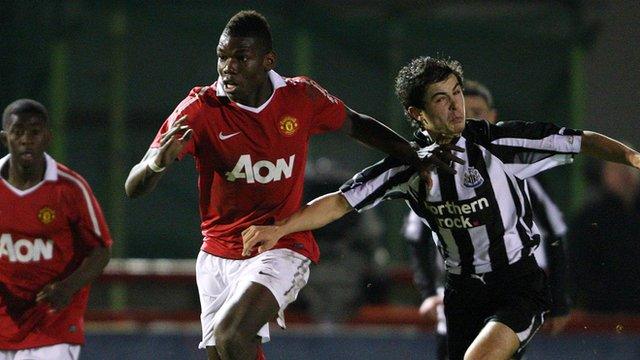
Paul Pogba signed for Manchester United as a 16-year-old from Le Havre in 2009
Paul Pogba will become the most valuable player in the world when he re-signs for Manchester United - but is he the club's most expensive mistake?
The Juventus midfielder left Old Trafford in 2012 because of a lack of first-team opportunities, but he could become the centrepiece of Jose Mourinho's new-look United side.
From £1.5m to £89m in four years
Pogba's talent has been evident for years. That was why United signed him from Le Havre in 2009, when he had already captained France's Under-16 team.
He was the same lithe, energetic athlete he is today, if somewhat more gangly. What he has done, according to knowledgeable sources, is apply himself and work at his game.
Now 23, he still has a tendency to float in and out of matches - he was not a consistent performer at Euro 2016 and did not appear to relish the deeper role he was given by coach Didier Deschamps when France lost to Portugal in the final.
But he has developed a greater understanding of his game and, with that mental maturity, more awareness of his positional responsibilities to the team as a whole.
In his first spell at United, he would be walked through specific situations to improve his game management, or be taken to senior matches and told to watch individual players rather than the game itself. This experience has been put to good use.
Under 21 football in England may be derided, but occasional outings alongside senior players also helped his education.
Pogba is not the finished article. But the promise United first identified seven years ago is showing positive signs of being fulfilled, more than enough to persuade the club to potentially pay such a massive fee.
Pogba made three substitute appearances for Manchester United in the Premier League, before joining Juventus for the 2012-13 season.
Will United be smarting at having to pay so much?
Pogba was brought to the club as a 16-year-old boy, deemed good enough to play a central role in an FA Youth Cup final triumph in 2011, but was allowed to leave for an overseas rival, before being bought back for a world record fee four years later.
Was it a mistake of gargantuan proportions or the consequence of a couple of isolated events combining to produce a very expensive outcome?
Sir Alex Ferguson wanted to keep Pogba in 2012. Still only 19 at the time, Pogba and his agent Mino Raiola were made a contract offer and rejected it, meaning that all Juventus had to pay was a compensation fee of £1.5m for the teenager.
Raiola believed Pogba should have been in the first team and on first-team wages. Ferguson felt he was still too raw to feature on a regular basis. It can't have helped that Ferguson and Raiola were like "oil and water", in the Scot's own words.
The pivotal decision came when Paul Scholes, at the age of 37, reversed his retirement decision in January 2012.
Scholes played 21 times in that half-season - and a further 21 in the campaign that followed. United were denied the title by Sergio Aguero's injury-time goal for Manchester City against QPR on the final day in 2012. They won it in 2013 - after which Scholes retired for good - but have not challenged since.
There is no way of knowing what would have happened if Scholes had stayed retired and Pogba had played those games instead. It is just as impossible to assess whether the young midfielder would have developed at the same rate in England as he has done at Juventus, with whom he has won four successive Serie A titles.
And had he remained at United, would Pogba now be looking to leave - just as Cristiano Ronaldo did for Real Madrid as he entered his prime?
One thing is for sure: ignoring a player you need, just because you had him once and let him go, would be cutting off your nose to spite your face.
Paul Pogba: Is Man Utd midfielder world class?
Where does he fit into the system?
It is tempting to say that if a club spend going on for £100m on a player, the system fits around him, not the other way around. Football is not quite so straightforward, though.
Even the best players can struggle without a structure - or if they are played out of position.
It is still a source of bewilderment to staff at United as to why Angel di Maria - their previous record signing at £59.7m - was used as a holding midfield player by former manager Louis van Gaal. Di Maria, it is worth remembering, began his Old Trafford career with three goals and three assists in his first five Premier League appearances from the offensive position he was so effective in for Real Madrid.
Pogba is a rarity in the modern game in that he is capable of both attack and defence. He is quick, has stamina and can tackle. Though not a prolific scorer, his average of one goal every five games suggests he is an attacking threat.
And while his average of one yellow card in every four games would put him under threat of suspension if repeated in England, he was not sent off last season.
In short, he is the kind of player United have lacked since Roy Keane left in 2005 - without the red cards. Mourinho will surely stick him in the centre of his midfield and work from there.
What does this mean for Wayne Rooney?
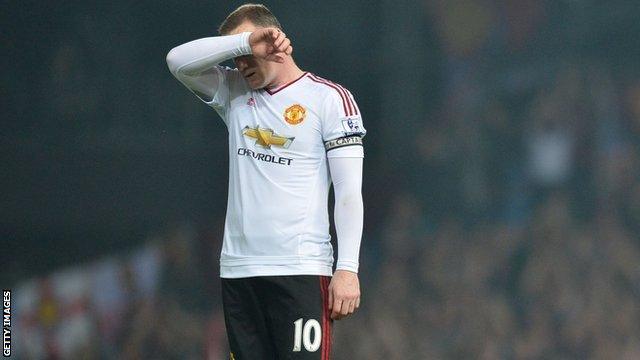
Wayne Rooney featured both in midfield and as a forward under Louis van Gaal
In his recent interview with the BBC, Mourinho said he did not understand why there was such uncertainty over Wayne Rooney, who was "the club captain, the players' captain and my captain".
However, there are many reasons why there are doubts about Rooney's future role at United.
Including transfer fees and wages over the respective periods of their contracts, Mourinho - when the Pogba deal is complete - has committed £250m on Zlatan Ibrahimovic, Henrikh Mkhitaryan and the Frenchman.
A front-line striker, a creative offensive player and a dominant midfielder are three of the four fundamentals Mourinho identified as needing urgent attention when he replaced Van Gaal.
At various points in his United career, Rooney has filled all these roles.
In noting United's deficiencies and by addressing them in such a calculated manner, it is a fair assumption Mourinho intends to utilise his new additions, particularly in the biggest games.
Rooney, for all his many attributes, is no speed merchant. Anthony Martial, Marcus Rashford, Jesse Lingard and Memphis Depay definitely are, making them better suited to wide positions. If the plan is to play Mkhitaryan wide, or deeper, in midfield, there is an obvious space for Rooney at number 10.
But is that going to get the best from the Armenian? Mourinho likes his central midfield to contain aggressive, athletic players, such as Claude Makelele and Michael Essien from his first stint at Chelsea. Pogba is in that mould. Morgan Schneiderlin and Daley Blind could work effectively alongside him. If that happens, the uncertainty over Rooney will persist.
Is the spending over for United?
The manager who says he is truly happy with his squad, that he has the best player possible for any position and could not countenance spending a little bit more, has not been invented yet.
Mourinho himself has said he would act "if something presents itself before 31 August".
What it is safe to say is that he won't be spending any more money without recouping some. Even accounting for the demands of six pre-Christmas games in the Europa League, United's squad is too bulky as it is.
Yet standards at Old Trafford have slipped so much since Ferguson's departure three years ago that it is hard to argue the issues have been rectified completely by Mourinho's four "fundamental" signings, which go straight through the spine of his team.
For instance, 12 months ago, United were engaged in a concerted attempt to get central defender Sergio Ramos out of Real Madrid.
It did not happen and Van Gaal did not recruit anyone else. In 23-year-old Ivory Coast defender Eric Bailly, who has played only 40 La Liga games, have United really strengthened their defence to Mourinho's satisfaction?
So who might go to create space? German World Cup winner Bastian Schweinsteiger and Belgian wide man Adnan Januzaj evidently have no future at Old Trafford. The same is also true of Tyler Blackett and Paddy McNair, two of the youngsters Van Gaal took pride in promoting.
Of the 23 outfield players Mourinho is prepared to base United's season around, Marcos Rojo's alarming impetuosity identifies him as one potential candidate. Antonio Valencia continues to give the impression of being a winger trying to play full-back, rather than someone sure of his surroundings.
Schneiderlin, Matteo Darmian and Depay were all massive disappointments in their first United campaigns.
It is generally unwise to form concrete opinions on a single season, particularly on players coming to England for the first time - as it is solely on performances in a major tournament. Nevertheless, none of that trio can be sure of themselves.
Ander Herrera is yet to show sustained form. And what of Juan Mata? The incredibly popular Spain midfielder, who United spent £37.1m on halfway through David Moyes' short tenure, was sold by Mourinho during his second spell at Chelsea.
That the questions and doubts are so numerous come as a direct result of both United's fifth-place finish last season and the various awful performances that contributed to it.
Until they wake from their post-Ferguson slumber, the forensic analysis of United and their players will go on.
- Published27 July 2016
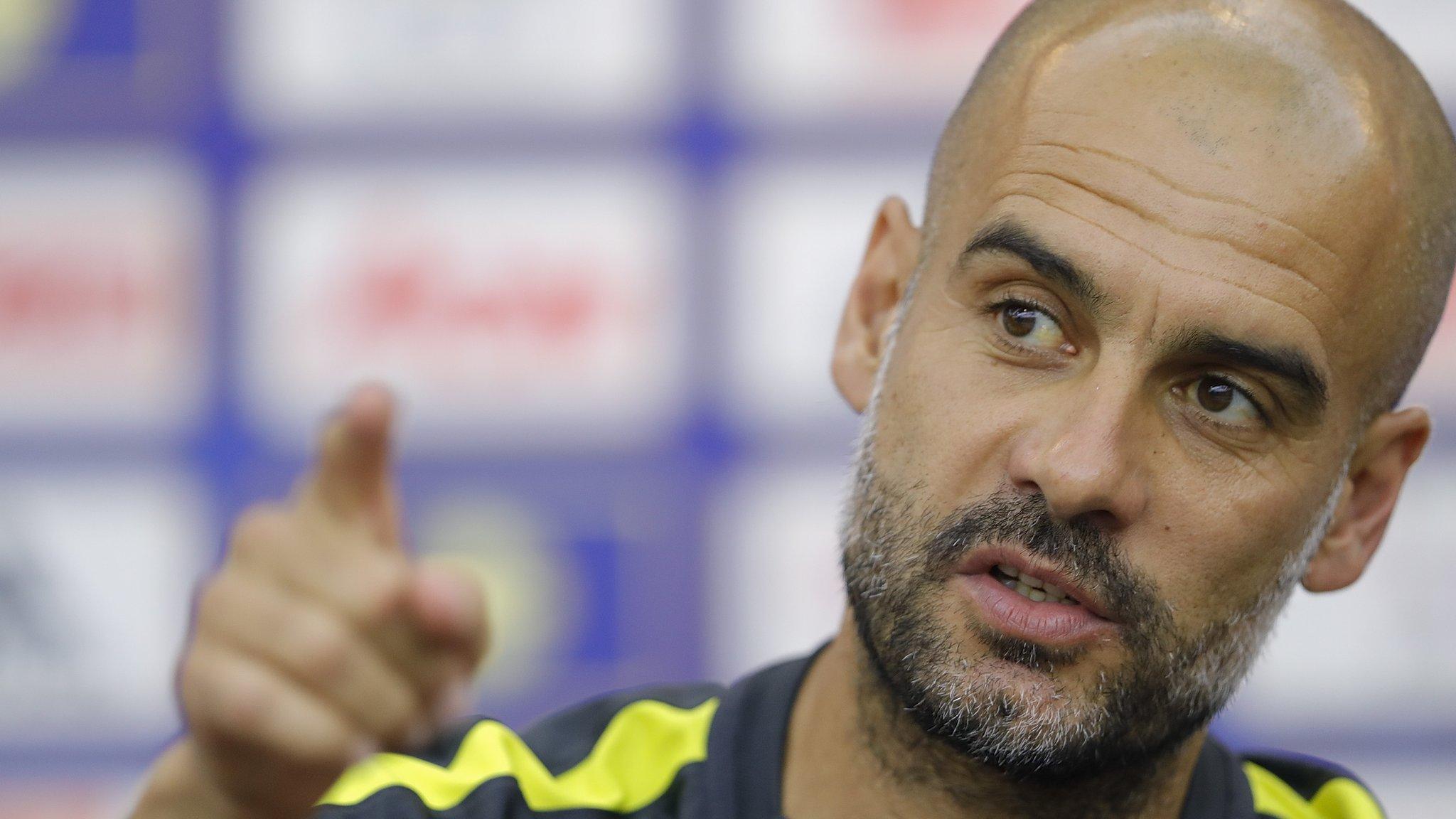
- Published27 July 2016
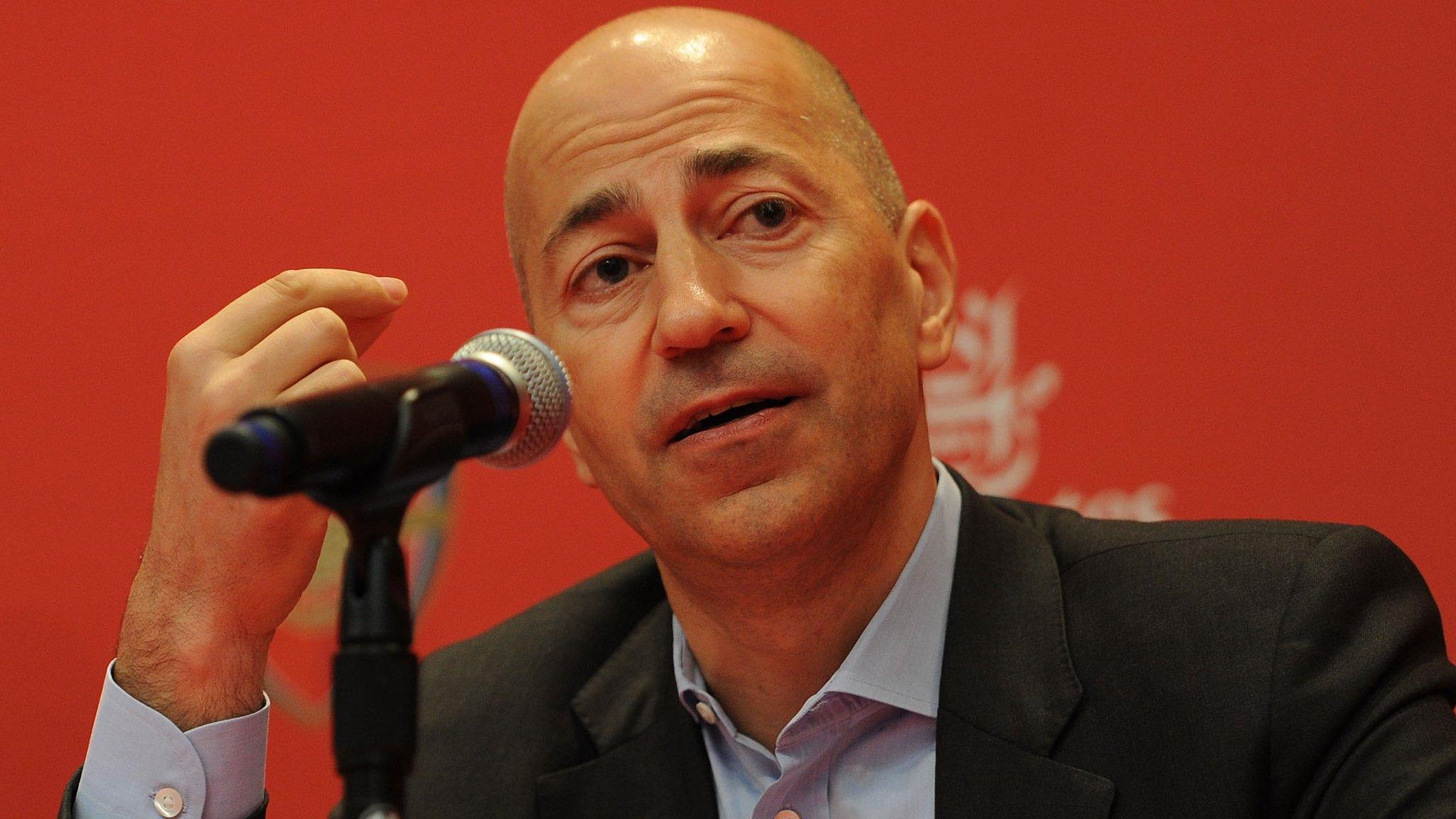
- Published26 July 2016
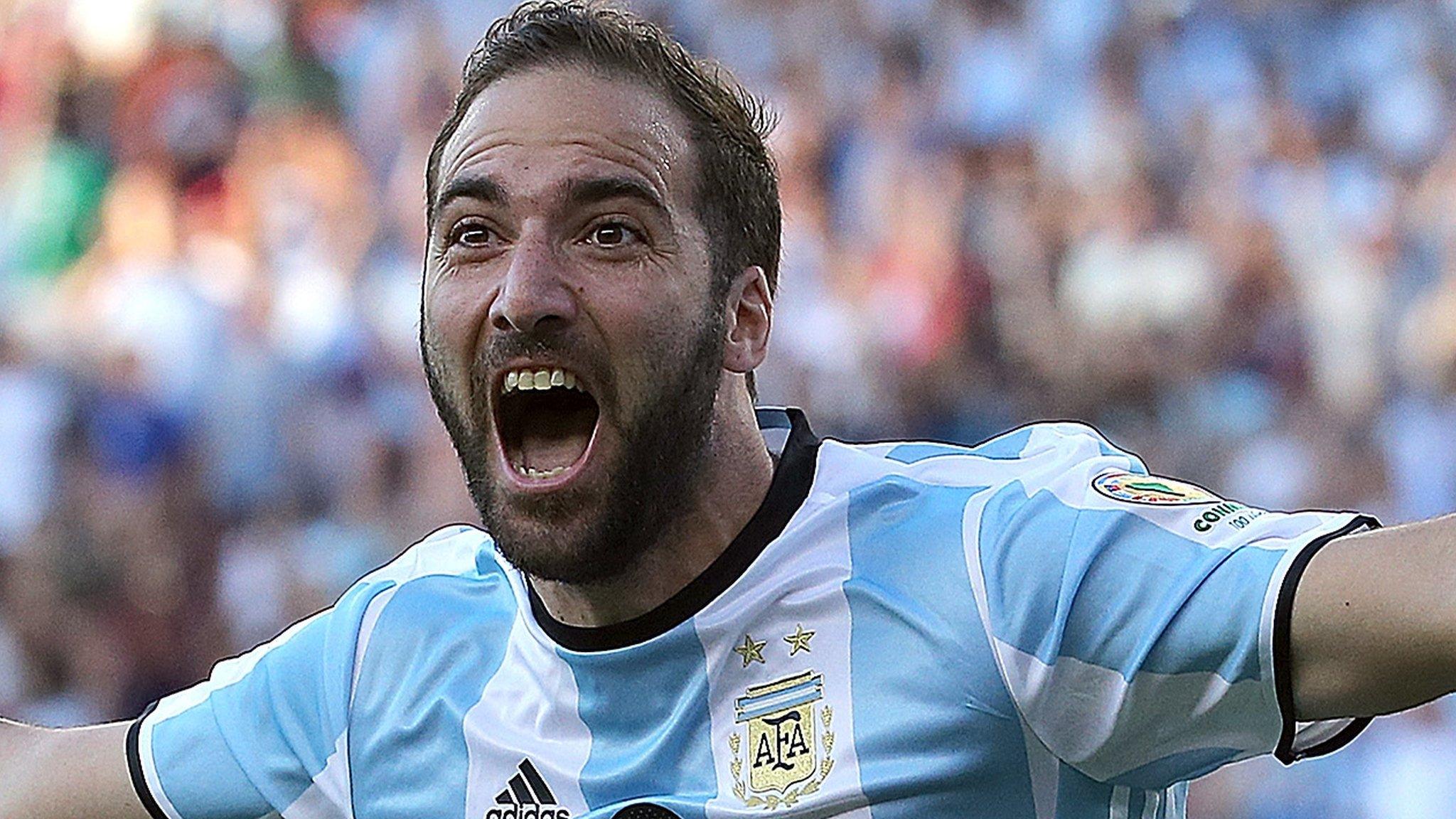
- Published14 January 2018
- Published7 June 2019
